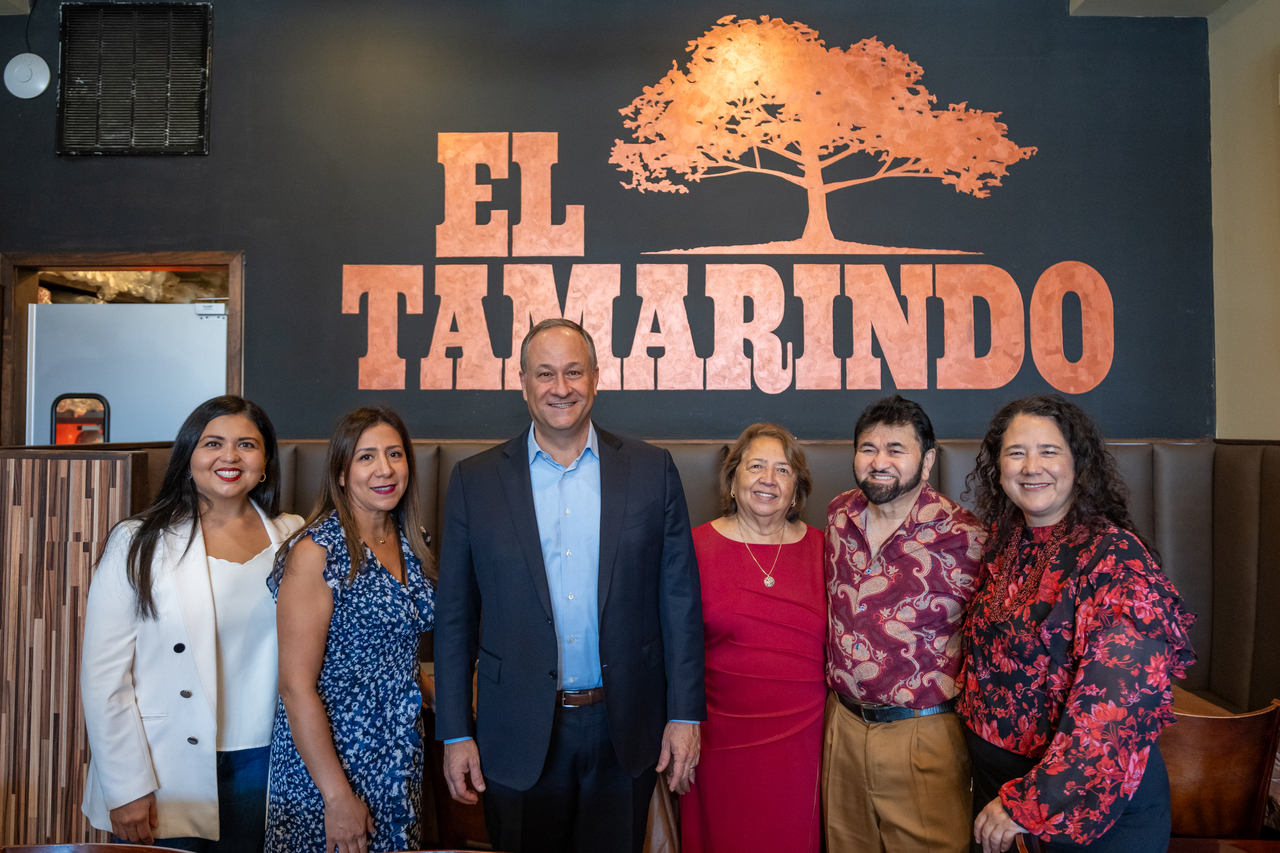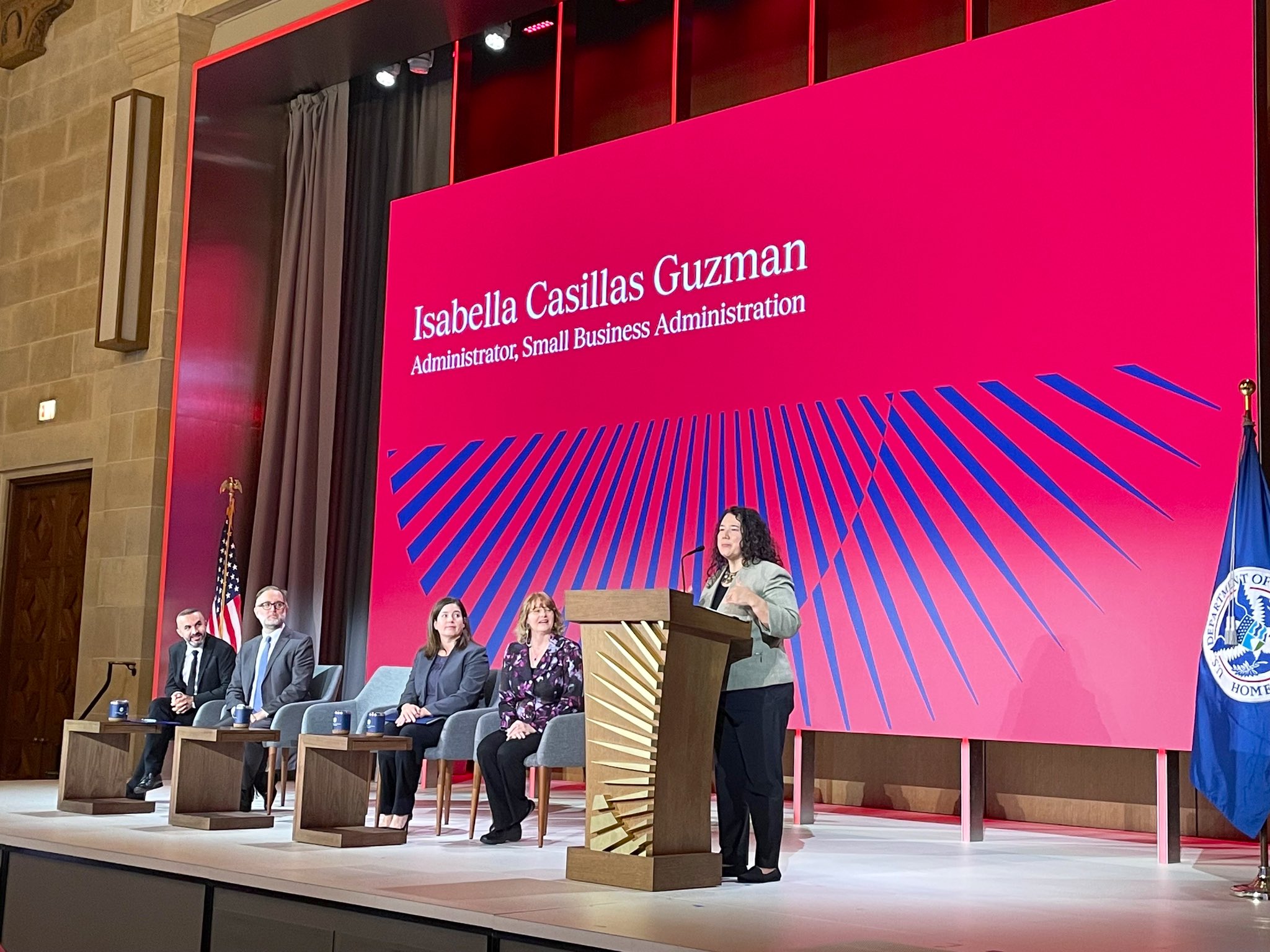
A Closer Look at a Hispanic ‘Blueprint’ for the Future, Part 2
More details and policy recommendations proposed by the National Hispanic Leadership Agenda, a coalition of 40 Latino organizations.
Calling int a “blueprint for advancing the Hispanic community,” NHLA’s public policy agenda covers 10 topic areas of interest to Hispanics: Economic Security & Empowerment, Education, Immigration, Government Accountability, Civil Rights, Environment and Energy, Health, Puerto Rico, Latina Rights & Well-being, LGBTQ Rights and Well-being.
Below is a look at the policy recommendations for five of the topics - Environment & Energy, Health, Puerto Rico, Latina Rights & Well-being, and LGBTQ Rights & Well-being.
- Engage Latinos and impact communities in the development of environmental laws, policies, and regulations.
- Create programs to deal humanely with the humanitarian crises of migrants displaced by environmental disasters or climate change.
Environmental justice
- Enforce and strengthen existing public health, environmental, and civil rights laws, including the Clean Air and Clean Water Acts, legislation that covers Superfund clean-ups, exposure to toxic pesticides, the National Environmental Protection Act (NEPA), methane and mercury standards, legislation intended to protect farmworkers and domestic workers, and Title VI of the Civil Rights Act.
- Clean energy, water, and oceans
- Promote the use of renewable power generation, energy efficiency, and enabling technologies.
- Support comprehensive federal legislation, policies, and regulations that move the U.S. towards utilizing 100 percent clean energy by 2050, such as the Green New Deal and the 100 Percent Clean Economy Act.
- Oppose efforts to weaken the Clean Water Act.
- Create employment opportunities by encouraging the training and participation of Latinos in the growing green energy sector.
Conservation & Public Lands
- Support policies to protect public lands, develop Latino conservation leadership, and protect and share Latino history in national monuments and protected areas.
- Support efforts to improve wildlife management and critical habitats across federal and state agencies, including defending and strengthening the Endangered Species Act and improving wildlife corridors, including those along the southern border.
- Oppose efforts to privatize or develop public lands in ways that harm Indigenous communities and communities of color, and oppose all efforts to advance oil and gas drilling in the Arctic National Wildlife Refuge and other sensitive areas.
- Continue to support full funding for the Land and Water Conservation Fund (LWCF) and oppose all efforts to undermine the Antiquities Act.
- Support federal agency policies and funding to ensure frontline communities of color are prioritized for coastal resilience projects, and support programs that promote coastal access, recreation, and education for low-income communities and communities of color.
- Support moratoriums on offshore drilling and legislation heavily curbing plastic production.
Clean energy transition
- Support deep investments in postsecondary and continuing education resources, and worker training programs ensuring access to skilled jobs in emerging and transforming economies.
- Invest heavily in STEM programs at HSIs and workforce transition programs.
- Access to quality and affordable health care
- Support and expand the Affordable Care Act, and resist attempts to repeal it or to challenge it in court.
- Ensure that health insurance options are affordable.
- Enhance health insurance literacy programs.
- Eliminate the seasonal worker exemption under the employer mandate.
- Strengthen health insurance portability across state lines.
- Develop policies to increase healthcare coverage for immigrants.
- Health care delivery reform
- Require that healthcare delivery reform be inclusive of culturally competent and linguistically appropriate services.
- Focus on safety-net hospitals, clinics, and private medical practices.
- Support and expand Medicare and Medicaid, and resist attempts to cut these benefits.
- Develop incentives for quality care for underserved populations.
- Encourage the collection of racial and ethnic identification in healthcare data.
- Ensure cultural and linguistic competency in health education, policies, and care facilities.
- Increase disease prevention programs that incorporate social determinants of health.
- Eliminate the five-year waiting period for legal residents to access Medicaid.
- Maintain the expansion of Medicaid to those up to 133 percent of the federal poverty line.
- Eliminate barriers to care for people in Puerto Rico.
- Population Health
- Encourage the participation of children and their families in programs to increase healthy nutrition and physical activity.
- Ensure Hispanic youth receive the human papillomavirus (HPV) vaccination.
- Provide LGBTQ Latinos coverage and access to care that is culturally competent.
- Address the needs of an aging population, including the particular needs of Hispanic elders.
- Work to eliminate racial inequity in access to prescription medicine.
- Create and fund an outreach program for racial minorities with mental illness and other diseases.
COVID-19
- Develop the infrastructure within the public health system to support free or low-cost education, testing, and treatment for Latinos through partnerships with national and regional organizations.
- Create a Hispanic healthcare initiative that includes developing medical education, research, community outreach, public education, and financing testing, treatment, and vaccines.
- Create and enforce strong occupational safety standards to prevent and respond to job-related exposure to COVID-19, and provide support to businesses for implementation.
- Expand economic security measures for families, including those with undocumented immigrant family members, such as paid family and sick leave, unemployment compensation, healthcare access, cash assistance, child care programs, educational opportunities, nutrition programs, and premium pay for workers in essential sectors.
- Ensure adequate disaster relief and other federal funds are appropriated and released in a timely and legal manner, without additional restrictions and barriers to access that are not required of other post-disaster entities.
- Repeal the PROMESA legislation, and reverse draconian austerity measures imposed by the federal budgetary oversight board that allows workers to be paid less than the minimum wage in Puerto Rico.
- Enact a Marshall Plan to hasten Puerto Rico’s recovery from its natural disasters.
- Repeal the Jones Act, which requires shipments to Puerto Rico to cost more than those to the mainland United States.
Education
- Halt austerity measures imposed on Puerto Rico by the federal budgetary oversight board in the PROMESA legislation, which have resulted in school closures and decreased funding for the island’s public university system.
- Allocate and distribute funds appropriated by Congress to Puerto Rico for rebuilding and restarting the island’s education system without imposing additional controls that are not required of other local governments.
Government Accountability
- Require the U.S. Department of Housing and Urban Development (HUD) and other federal agencies to release all disaster relief funds that are appropriated by Congress.
- Establish a moratorium on negotiations or repayment of existing debt until the federal government has ensured an independent audit is performed and certified by nongovernmental experts, and discharge of any illegal or unconstitutional debt is allowed.
- Establish a process that ensures transparency in decisions, allocations, and contracts by all government agencies at every level to avoid corruption and favoritism.
- Ensure meaningful community participation and appropriate allocation of resources.
- Create systems that ensure public participation and radical transparency during all phases of decision-making processes, such as robust stakeholder analysis, and collaborative and mandatory public participation mechanisms.
Environment & Energy
- Bolster Puerto Rico's agriculture sector and promote resilient and sustainable local food production, and access to safe, potable water, which is essential for communities on the island to recover and thrive.
- Support investments into renewable and sustainable energy sources.
Health
- Eliminate federal funding healthcare disparities and make large-scale investments to revitalize the infrastructure and operations in hospitals and community health centers, and retain medical professionals on the island.
- Require Medicare programs in Puerto Rico to be reimbursed at the same rate as programs in the mainland United States.
Equal pay
RELATED CONTENT
The gender pay gap disproportionately impacts Latina women when compared to all other demographic groups.
Education
- Support measures that protect students from sex-based discrimination and promote increased Latina enrollment and faculty hiring and retention in higher education.
- Oppose administrative changes of Title IX that undermine student safety and students’ rights in schools and on college campuses.
Immigration
- Enact legislation that prohibits family detention and separation.
- The timely adjudication of relief for immigrant victims of domestic violence, sexual assault, and trafficking through the VAWA self-petition, U and T visas, and access to asylum.
- Any legislation that provides temporary work visas, a pathway to temporary immigration status, or lawful permanent residency should take into account the distinct needs of spouses to obtain work authorization and access to immigration relief.
Government accountability
- Increase Latina state and presidential political appointments.
- Increase federal contracting opportunities for Latina-owned small businesses
- Develop a pipeline program for Latina candidates into senior-level government positions
- Policymakers must also enact legislation that eliminates health disparities for communities of color by tackling discriminatory practices and other systemic barriers that produce health inequities in vulnerable populations and support access to comprehensive reproductive healthcare for women of color.
- Increase the availability of microfinance for small business development, which is particularly critical for Hispanic, immigrant, and LGBTQ entrepreneurs.
- Expand and enforce anti-discrimination legislation, including anti-LGBTQ discrimination in housing, the workplace, credit, education, public accommodations, public spaces and services, federally funded programs, and jury service. •
- Prohibit harassment, discrimination, and bullying, particularly against LGBTQ students.
- Enforce Title IX protections for all persons regardless of sexual orientation or gender identity, to ensure that all students are free from discrimination.
- Provide appropriate school-based mental and emotional health support for students, and staff that is culturally and linguistically competent, including LGBTQ competence.
- Combat the school-to-prison pipeline for LGBTQ youth.
Health
- Support policies that provide LGBTQ Latine coverage and access to gender-affirming care that is culturally competent, including ensuring that health plans do not have arbitrary transgender-specific exclusions.
- End the U.S. HIV/AIDS epidemic by 2030.
Environment & Energy
Expand research identifying preventative measures that address the effects that climate change will have on vulnerable populations, including the LGBTQ community.
Civil Rights
- Promote the ability to update identification documents based on gender identity rather than medical treatment.
- Support the collection of data on sexual orientation and gender identity in the American Community Survey and other surveys, and include a non-binary option under gender.
- Encourage the nomination of executive and judiciary branch nominees with a record of advancing equality and opportunity for LGBTQ people.
- Encourage law enforcement to adopt best practices for policing LGBTQ communities and condition federal grants to law enforcement agencies on adopting LGBTQ-inclusive anti-profiling and antibias policies.
- Create model Justice Department policies for law enforcement on key topics including police sexual misconduct, interactions with LGBTQ people, and eliminating the confiscation and use of condoms as evidence.
- End “stop-and-frisk” policies, which disproportionately impact Latinos, other people of color, immigrants, and LGBTQ people.
- Discourage arrests or detainments for youth truancy or homelessness.
- Ensure that juvenile justice programs address the particular issues faced by LGBTQ Latinx youth, who are disproportionately homeless and resort to survival crimes.
Government accountability
- Support policies that are inclusive of transgender military personnel.
- Support documenting hate crimes against LGBTQ people nationally and per state.
- Encourage financial support for victimized LGBTQ people and organizations supporting LGBTQ people.










LEAVE A COMMENT:
Join the discussion! Leave a comment.